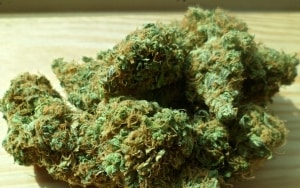
Our organization is dedicated to being on the forefront of addiction treatment, and this includes embracing some controversial concepts along the way, such as:
- Harm reduction treatment:
- providing safe spaces for drug use
- utilizing opiate alternatives like methadone to reduce dependence on more dangerous opiates (like heroin)
- Classifying addiction as a disease:
- addiction can be exacerbated by environment, but we believe addiction primarily affects those who are genetically predisposed to it and should be treated like a medical disease akin to diabetes
Is Medical Marijuana a Step in the Right Direction?
Our team is very progressive, and we are fully of the opinion that marijuana is way less damaging and deadly than:
- all opiate medications
- alcohol
- cigarettes
- most (if not all) illegal drugs
- most (if not all) misused “legal” substances (like inhalants or cough/cold medicine)
Not very physically addictive: We have learned that marijuana, while definitely mentally addictive, is not nearly as physically addictive than almost any other substance of abuse.
Marijuana is particularly less deadly than alcohol: Alcohol, which has been legal in this country for almost it’s entire history, has destroyed more lives due to addiction, domestic abuse, and fatal auto accidents than marijuana could ever hope to.
There has never been a recorded fatality of someone who has overdosed on died on marijuana (literally happens daily with the entire list of other substances above).
Medical Marijuana is a Step in the Wrong Direction
We are not enthusiastic at all about the decriminalization of marijuana. We feel the “net negative” will outweigh the “net positives.” Here are two key reasons why:
-
Marijuana will exacerbate mental issues in some users.
As a somewhat crude example of this, we will remind you of the tragic story of a teen eating a pot cookie and jumping to his death in Colorado. Now that we’ve got your attention, it must be said that this particular example is a bit extreme. It is unclear if the teen had mood or behavioral issues to begin with. Certainly there are much more horrifying tales of “alcohol binge” related fatalities that occur every weekend throughout our nation.
But our concern is for the fragile young minds that we have treated for addiction to various substances. There is so often mood and behavioral issues present that must be addressed during their treatment, such as:
- overwhelming anxiety
- depression
- low self esteem
- trauma
We have learned through years of closely working with recovering people that marijuana can exacerbate these issues, causing episodes like panic attacks or depressed feelings. Users often will isolate and avoid seeking help from their support system when they have been using marijuana (perhaps because they are ashamed to have “relapsed”).
2. Marijuana will lead users to more damaging substances.
As stated above, addiction is a medical disease. Once the user starts the process of coping with the stress of life by self medicating with their substance of choice, they are on a perilous road of mental and physical dependence on the substance.
So, if we stated above that marijuana is not nearly as physically addictive as almost any other substance of abuse, then why are we against it’s proliferation? The answer lies in brain chemistry.
For many, there is a pleasurable reward caused by using marijuana that results in a rush of dopamine to be released in the brain. As with almost all drugs, this spike in dopamine leads to a perceived depletion in the dopamine level when the drugs wear off. As the addiction progresses, the person’s primal survival instincts will hijack their decision making causing them to seek the drug in order to experience that sense of well being.
With marijuana’s legalization and the technological advances in growing (and synthesizing) pot, the strength of marijuana is off the charts, particularly with “concentrates” (like wax, shatter, amber, keef/kief). Combined with the lack of regulation in the “doses” of marijuana (ie strength of each strain, concentrate, or edible substance), modern marijuana’s potency will result in users getting huge “servings” of THC.
But as with almost all substances of abuse there will be tolerance that develops which requires the user to take more of the drug. But what happens when the genetically “at risk” user has seemingly “maxed out” on the pleasure they perceive from using marijuana? We have seen from our own experience treating people that the user will seek out alternatives that provide a stronger “high.” These can of course include alcohol and opiate medications. Both of these alternatives have a well chronicled deadly effect on many users.
Conclusion
We would like to remind the reader that our concern is primarily with the population who is at risk for developing a chemical dependency. This is a small subset of the total population, but it is the set of people who have filled the treatment centers of America for all these decades (and also filled the morgues as well, too often taking innocent people with them).
For the majority of the population, we admit marijuana is a preferable alternative to other substances (particularly alcohol). But just like many people can use addictive opiate medications as prescribed and never develop a dependence on them, we feel the “at risk” population’s likelihood of developing the addiction and having the medication destroy their lives warrants the making of such substances illegal.


Leave A Comment
You must be logged in to post a comment.